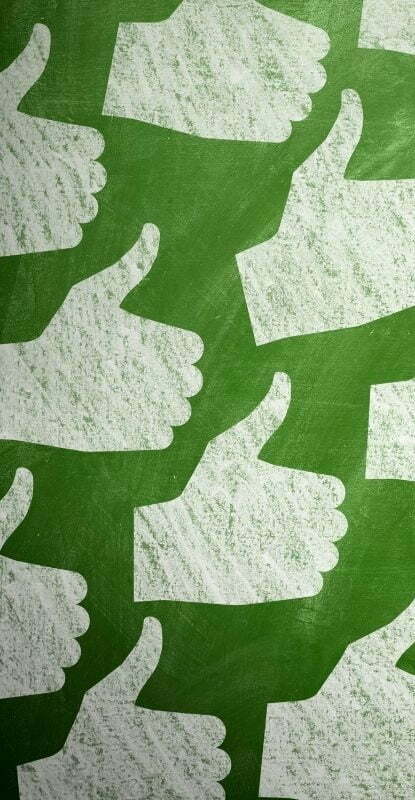Being Social Online Makes You Lonely Offline
People are more connected today than at any point in history.
Even though we are able to pick up a device, press a few buttons, and launch into conversation with almost anyone, anywhere in the world…
We are lonelier than ever.
There are 4.48 billion active social media users, with 90% of 18 to 29 year-olds participating online in some way. Some statistics claim that around 61% of young adults feel “serious loneliness.”

With so many young people using these sites and interacting with others, why do they feel so alone?
“Socials” routine
Like many of my peers, I used social media to keep in touch with the personal lives of tens of people. I had a routine in the morning where I checked my “socials,” and then another nighttime routine where I checked them again. I saw every update, photo, opinion, and thought of hundreds of people every day for years. I felt like I was socializing but I found myself feeling severely depressed. I'd see videos and pictures of my friends and just ache. I cried regularly and felt completely alone. It took me a long time to connect my obsessive internet usage to my declining mental health.
Some companies, such as Facebook, have admitted to arranging content in order to make users feel specific emotions. The process was as simple as filtering certain keywords and promoting certain posts. This is extremely concerning, in my opinion, because it just goes to show that we are affected by what content we consume in a very personal and emotional way.

There are endless accounts of social media users reporting mental health issues relating to or caused by popular applications.
“You're the product”
When we flock to social media as a way to connect to others, or “stay informed,” we forget that the websites themselves exist, stay afloat, and make money by selling advertisement real estate to organizations to reach and create potential customers. This causes developers to prioritize strategies to attract, engage, gather information from, trap, and monetize users.
To attract users, making an account is usually free.
Engaging a user to cause them to input their interests, dislikes, feelings, location, birthday, real life contacts, or just about anything, can be as simple as letting people write their own tags, encouraging them to fill out a profile page, or having a “like” or “dislike” button. Many websites are gamified, as well, to make it more entertaining and cause you to come back over and over throughout the day. The longer and more frequently that someone uses these sites, the more information that is gathered about them.

Eventually, this information is sold to advertisers that pay the social media company to then target you with custom ads and promoted posts. In essence, social media websites want you to use their products for as long as possible and as often as possible, and have many strategies to keep you engaging with their application. My father likes to say that “if something is free, it's because you are the product.”
Social media companies prey on young people by promising kinship and exciting content, only to promote advertisements, gather private information, possibly thought-control, and end up warping one's sense of community.
Alone in a sea of “friends?”
I justified using social media because I felt like I was keeping up with my friends. It felt good to know what my circles were doing each day. I watched my friends graduate. I watched my friends start college. I watched my friends get married and start families.
It was a strange experience, feeling like you're involved in someone's life from the sidelines.
All of the people in my life were a text message away; I just didn't feel the genuine human connection anymore. I was suicidal for years. I craved friendship and community, so I stayed online.

I wasn't the only one, either. Across the United States, 4.34% of adults self reported serious thoughts of suicide in 2021. That's 10.7 million people and only the ones that we know about.
Escaping the social trap
Many of my friends dealt with suicidal thoughts and even attempted. To think that I wouldn't have over half of the people in my friend group breaks my heart. A few of my friends and I decided we were going to make a change for our mental health. We stopped using social media, started exercising more, and all got therapists. I have felt suicidal for the majority of my life; only recently have I felt relief.
Avoiding social media helped tremendously. Now, I make more of an effort to see my friends in person.
Finally, I feel connected with my friends and even strangers. Human connection, in general, feels genuine again.

We want to be loved; social media companies want profit
Just because we are able to communicate with each other through our phones does not mean that we are truly unified. We should question why social media companies are not held accountable for profiting off of humanity's innate desire to be involved, as there is a direct link between social media use and feelings of loneliness, especially in their largest user demographic. In a time where most social interactions happen online and on social media, it is easy to see why so many people feel alone. Surrounding oneself with friends and family may make things a little easier.

Find help before you really need it.
The National Suicide Prevention Lifeline: 800.273.8255
Bibliography
- Facebook reveals news feed experiment to control emotions: Protests over secret study involving 689,000 users in which friends' postings were moved to influence moods (Note: This article is more than 7 years old)
- Prevalence of Mental Illness 2021
- Loneliness in America: How the Pandemic Has Deepened an Epidemic of Loneliness and What We Can Do About It: The global pandemic has deepened an epidemic of loneliness in America.
This “Eyes on Trafficking” story is reprinted from its original online location.
 ABOUT PBJ LEARNING
ABOUT PBJ LEARNING
PBJ Learning is a leading provider of online human trafficking training, focusing on awareness and prevention education. Their interactive Human Trafficking Essentials online course is used worldwide to educate professionals and individuals how to recognize human trafficking and how to respond to potential victims. Learn on any web browser (even your mobile phone) at any time.
More stories like this can be found in your PBJ Learning Knowledge Vault.
EYES ON TRAFFICKING
This “Eyes on Trafficking” story is reprinted from its original online location.
ABOUT PBJ LEARNING
PBJ Learning is a leading provider of online human trafficking training, focusing on awareness and prevention education. Their interactive Human Trafficking Essentials online course is used worldwide to educate professionals and individuals how to recognize human trafficking and how to respond to potential victims. Learn on any web browser (even your mobile phone) at any time.
More stories like this can be found in your PBJ Learning Knowledge Vault.
